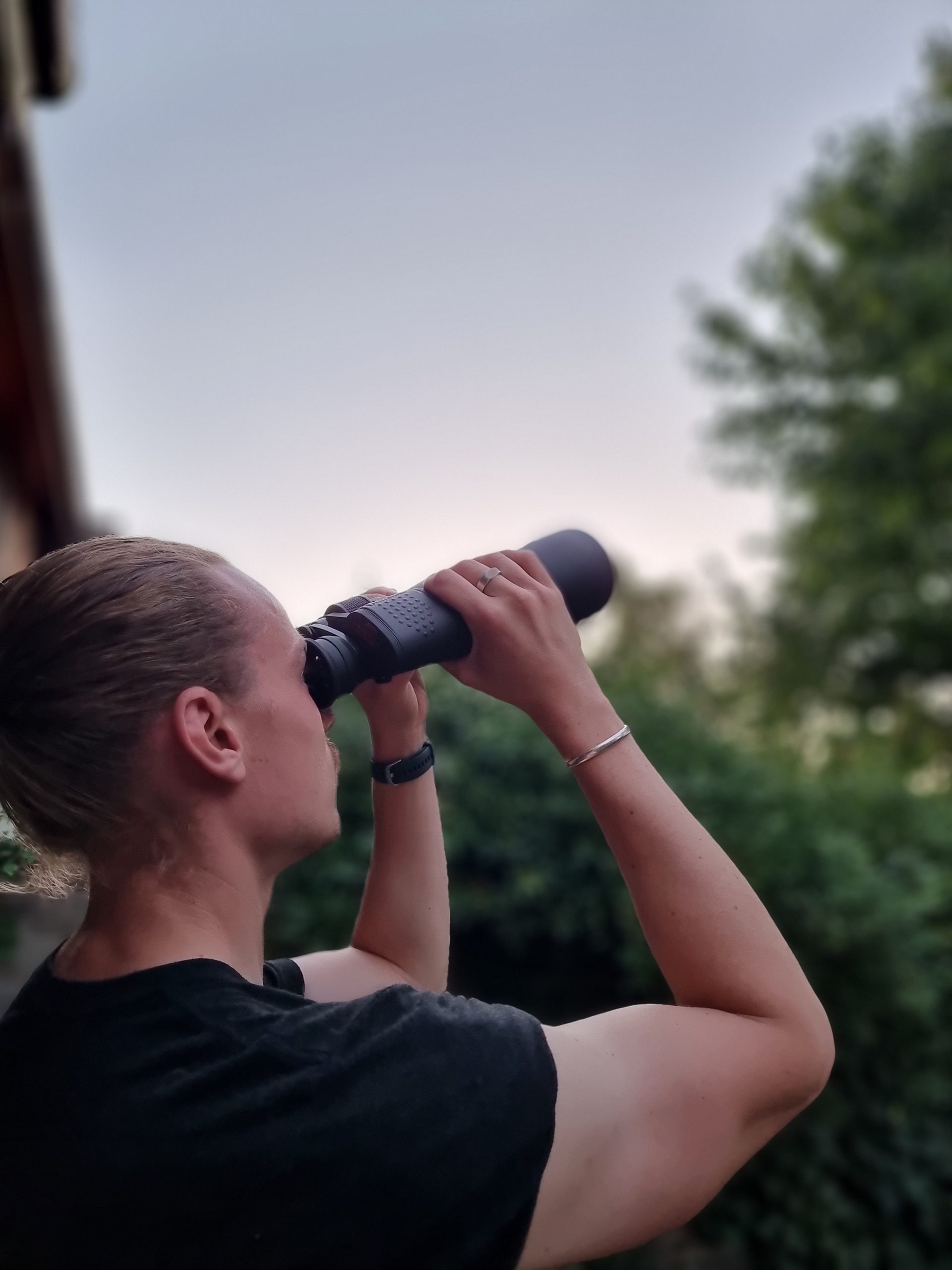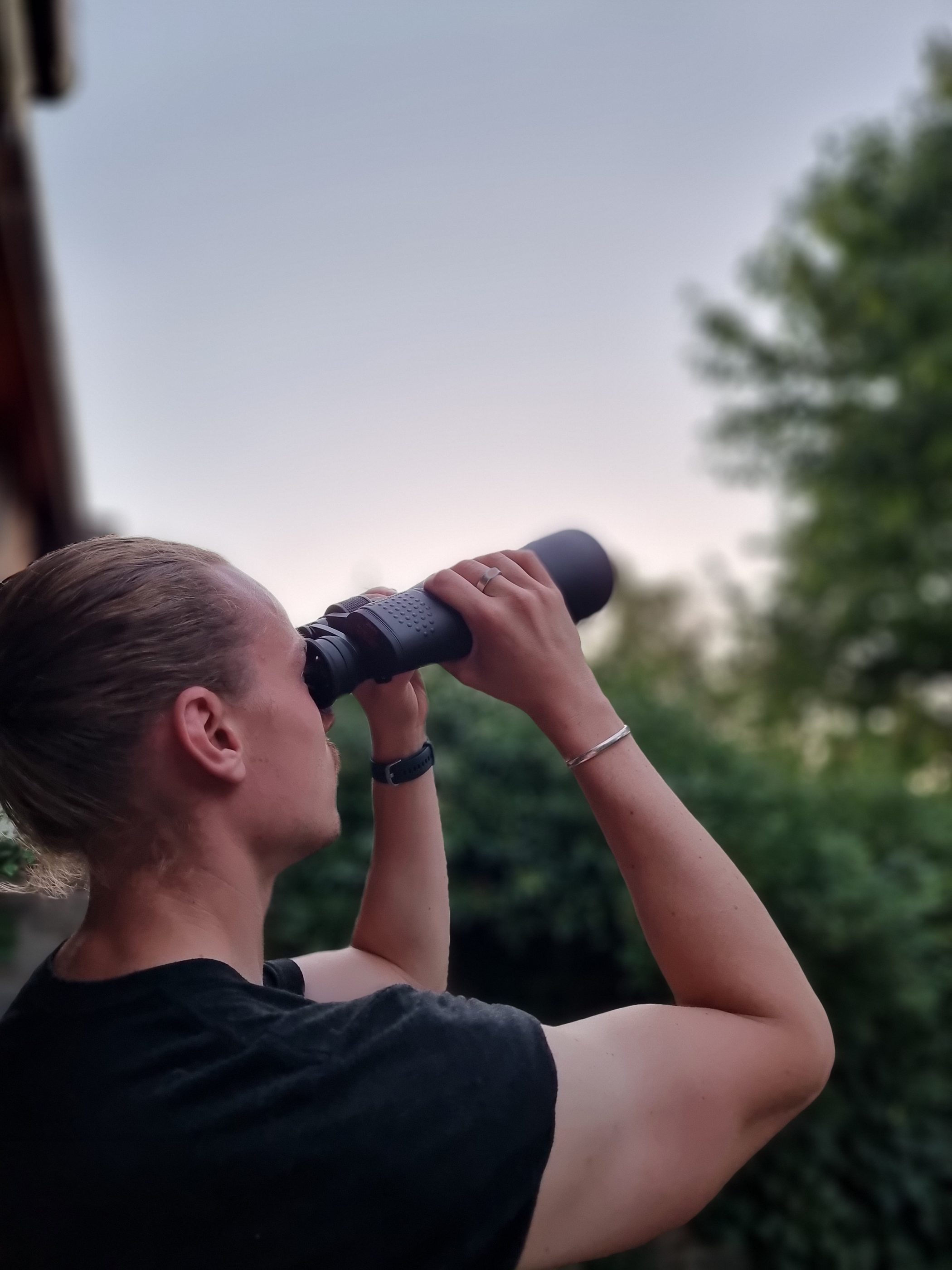Many professions require good eyesight, from firefighters to police and surgeons to lifeguards. But is good eyesight a fundamental requirement for being an astronaut? Does having impaired vision prevent you from being able to be one, and what are NASA’s policies on the matter even? Here is everything you are going to want to know.
Can astronauts wear glasses? Astronauts can wear glasses, and it is encouraged by NASA to improve vision. In fact, astronauts must have 20/20 vision to be sent up to space, just like pilots need it for piloting planes. If glasses are required to enable 20/20 vision, they must be worn. Although, astronauts wear specialized slimline glasses designed for space.
Wearing glasses does not disqualify you from traveling to space, but it does require meticulous planning ahead of time.
Besides, good eyesight is essential to being an astronaut.
Are Astronauts Allowed To Have Glasses?
Astronauts are allowed to wear glasses if it makes up the difference in their vision and provides them with the 20/20 vision they need to perform their role.
If you are going up to space and you need glasses, make sure to pack a spare pair.
You don’t want to get all the way up there and realize that you are without your glasses.
Funnily enough, there isn’t an optician on the moon; you can quickly pop off to pick up a replacement pair.
You only have to look at the photographs of astronauts, whether it’s before spaceflight or whilst they’re up on a space station, and you will see them wearing glasses with their spacesuit.
In fact, approximately 80% of astronauts wear corrective lenses.
Good eyesight is important for astronauts as they need to be able to read screens, manuals, instruments, or a detective-mystery novel.
If glasses aid them in completing these tasks, then, of course, they are allowed to take their glasses to space.
Is the same amount of leniency afforded to those with contact lenses?
Yes, contact lenses are another type of corrective lenses, so they too get the all-clear for visiting space.
Specialist contact lenses specifically made for space travel are designed by NASA and other corporations.
This is due to the conditions of space impacting standard contact lenses.
As we know, there is hardly any gravity in space, consequently leading to different movements of gases, liquids, and solids that our bodies are not accustomed to.
Contact lenses, therefore, perform differently up in space.
What has been designed is a Hyperfuried Delivery System Contact Lens.
These gas-permeable lenses prevent deposits and bacteria buildups, which normal contact lenses are susceptible to.
What Would Happen If An Astronaut Wore Glasses In Space?
As long as an astronaut ensures the glasses are secure to their face, nothing will happen. Otherwise, they might float off.
Just like contact lenses, astronauts travel up to space with the most suitable pair of glasses for a cosmic environment.
Normally, glasses are joined together by tiny screws, which could be vulnerable to falling out whilst in space.
It wouldn’t exactly be ideal for your glasses to drift up and off your face whilst outside the spacecraft in your spacesuit, would it?
Remember, you can’t just take your helmet off and put the glasses back on your face!
But you will need to take action, meaning quickly get back into the spacecraft and put your glasses back on there.
If you wait too long, you run the risk of swallowing the screws or, dare we say, allowing them to damage your spacesuit.
Even before you enter space, your glasses could cause an early issue. Spaceflight isn’t exactly the smoothest method of transport.
Brutal vibrations can knock glasses off of an astronaut’s face.
What Glasses Do Astronauts Wear?
Astronauts often wear a model known as the Titan Minimal Art. The frames are very light and do not contain any tiny screws or small pieces.
The glasses also use a superelasticity that stops them from falling off whilst remaining comfortable.
On top of that, the design isn’t too bad either, so astronauts don’t have to worry about looking silly in space.
The style of the glasses is….well….minimalist, I guess.
Can You Be An Astronaut With Bad Eyesight?
As long as you can achieve 20/20 vision, then yes. If you need glasses or contact lenses to achieve this, the answer is still yes. So, you can be an astronaut even if your eyesight isn’t the greatest.
You just need to be able to pass the physical, along with a few other requirements.
And while that sounds particularly challenging, consider this:
The average age of an astronaut is around 47/48 years old.
This is around the time when presbyopia kicks in.
Presbyopia is the far-sightedness that comes with getting older.
So, it is clear that NASA will allow some leeway here.
What is important is whether or not an astronaut can pass the necessary tests.
Trust me, there are quite a few of them, but today we’re just going to talk about the ones concerning eyesight.
Eye tests are conducted to check whether an aspiring astronaut has distant and near visual acuity that is 20/20 in each eye or at least correctible to this.
We knew this already. Aspiring astronauts must pass this test and others that look at color perception (so they can’t be color blind) as well as 3D vision.
We know that glasses and contact lenses do not disqualify an astronaut; however, any visual defects that show signs of progressing could result in disqualification.
Is this where the hopes of attaining that dream job end? Well, maybe. But also maybe not.
Some surgical interventions to repair any visual defects can save the job prospect; others are not accepted by NASA.
Those that have laser eye surgery to tackle any such defects must wait a year after the procedure before they can even start training, let alone hopping into a rocket.
So there’s hope for most people, but this wasn’t always the case.
Back in the day, when the space program was just getting set up, aspiring astronauts needed to have a natural 20/20 vision.
That’s right, natural 20/20 vision, meaning glasses and contact lenses could not be used.
Thankfully, NASA has changed the way they look at this requirement.
Does Eyesight Worsen In Space?
Whilst you’re up there looking around, no, your eyesight isn’t hindered. However, when you return to Earth, that’s when you might start to see a problem.
Living up in space for a long time can have significant impacts on your body due to it not being familiar with this environment.
We’re so used to living with gravity that when we travel to a place where there is hardly any, the body struggles to adapt.
Without so much gravity, bone density and muscle mass are reduced.
This can cause your heart to shrink and your spine to stretch, but space can also impact your eyesight.
Many astronauts have returned to Earth and found new difficulties with seeing.
This is known as Visual Impairment Intracranial Pressure.
Scientists believe that this occurs when there is a build-up of cerebrospinal fluid (CSF) due to the lack of gravity not being able to pull it down.
The more CSF in an astronaut, the harder it is for them to see. This extra fluid can also change the state of an astronaut’s eyes.
The eyes can become flatter whilst their optic nerves will suffer swelling.
With all this nastiness going on, it’s no wonder astronauts notice a negative change in their eyesight when they return home.
Finally
Unless you have severe eyesight issues that can’t be corrected, you’re free to become an astronaut……that is, if you pass the many other rigorous physical and psychological tests.
Astronauts have been rocking stylish shades for some time but don’t expect to see them on the Gucci catwalk soon.
Actually, maybe you will. Who knows when it comes to fashion trends.
Impairment in your sight is a big price to pay for space travel. But you would want to be able to see all the stars in space.
And rest assured, NASA and other organizations do their best to minimize this issue.
Wondering what else astronauts can and cannot do? Then my other guides may be of interest:
- Can Astronauts Have Tattoos?
- Can Astronauts Smoke In Space?
- Can Astronauts Drink Alcohol In Space?
- Can Astronauts Use Internet In Space?
- Can Astronauts Use Cellphones In Space?
- Can Astronauts Burp In Space?
- Can Astronauts Fart In Space?
- Can Astronauts See Stars In Space?

Hey, my name is Jeremy. I’m a passionate and seasoned astronomer who loves nothing more than observing the night sky. I also love researching, learning, and writing all things Space and the Universe. I created Astronomy Scope to share my knowledge, experience, suggestions, and recommendations of what I have learned along the way while helping anyone to get into and maximize their enjoyment of the hobby.

